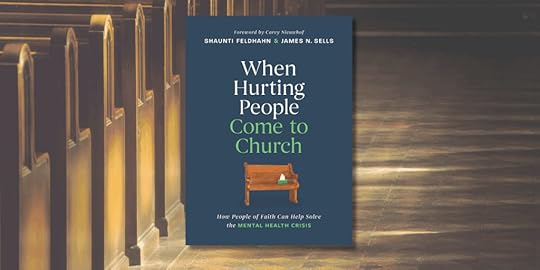Spending Doesn’t Fix Our Insides
Carissa is a sweet and social high school student who volunteers in the church nursery, gets good grades, and is respectful to adults. She occasionally gets stressed by homework or disagreeing with mom and dad about house rules, but she usually goes for a drive and comes back chatty and carefree.
At first, Carissa’s parents admired her for adjusting her attitude and bouncing back so quickly. But then they noticed a pattern: Their daughter usually came home with something she purchased—a coffee, makeup, a cute shirt. Shopping made her feel better.
Maybe you have seen this in your kids. Maybe you have seen this in yourselves.
You’re not alone. Money holds unexpected power in our emotional world, doesn’t it? According to our research for Thriving in Love & Money, nearly two-thirds of the thousands of people surveyed report using money to feel better about themselves.
The way we do this often looks different for men and women, and for spenders and savers, but this sneaky core truth nags at many of us: We use money to address our feelings of inadequacy in ourselves and in our marriages. And our kids pick up these cues. (Their own social media feeds provide plenty of that stimulus, too.)
As couples and as parents, we have a tremendous opportunity to examine how we might be using money to fill the holes in our hearts that only God can fill—and teach our kids to do the same.
Know Thyself!
One of the fascinating findings of our nationally representative research is that men and women often use money differently when they’re feeling vulnerable. See if you recognize yourself in any of the following situations—and ask your spouse what they think as well. (At the end of the article, see the “answer key” for which gender statistically tends to line up more with each number.)
Measuring self-worth by how much money you earn. Taking promotions that require more hours in order to provide the physical and emotional benefit of “money in the bank.” Spending to “feel new.” Making decisions based on the ever-present fear that family finances could fall apart if you’re not vigilant. Spending so that you feel cared for—especially if you care for others non-stop. Saving as a measure of status (“Look at my bank account.”) or as a matter of security (“Look at my bank account!”)Earning, saving, purchasing … all of these things are fairly neutral activities in and of themselves. So when we try to use them as emotional solutions, it’s good to stop and get to the root of that.
So, how do we start? Here are three ideas on how to navigate money, self-worth, and insecurity with ourselves and with our kids.
#1: Identify the feelings underneath the impulsesBefore you accept the overtime shift that will take you away from family (again) or run to your favorite big box for retail therapy (again), press pause, and ask yourself: What’s running under the surface of this impulse?
Pay attention here, because something deeper may need attention. It’s important to help our kids become attuned to this, too.
For example, imagine you’re Carissa’s parents. You empathize with the pressure she feels about needing near-perfect grades to get into her desired college. You understand that the curfew you set may cause her to miss social activities. But you also observe that when she buys a cute shirt, she feels a rush of temporary relief. And in our research, she wouldn’t be unusual: 59% of women surveyed for Thriving in Love & Money reported that when they were having a bad week, they like to go shopping for something new. One woman we spoke with said, “Getting something new camouflages who we feel like on the inside.”
So instead, in that situation, you can help your daughter meet her real need.
You could speak over her (or memorize with her) Bible verses about how to address fear or to find her true worth to God, no matter her grades or social calendar. You could brainstorm healthy ways to process stress, like journaling and prayer. (Even better if this happens on a walk with you.) You could ask her what she needs from you to feel supported. You could ask her whether she ever feels pressured to showcase wealth or “stuff” on social media. (A December 2023 survey revealed that 24% of those in Gen Z have felt pressured in that way.) You could ask her how social media is making her feel in general and let her know that disengaging truly is an option.There are any number of possibilities, and as parents of your children, you know what will reach them best. But as you talk with your kids—or your spouse—consider “thinking out loud” to model healthy processing. For example: “I feel so upset about the comment my coworker made to me today. I really want to run to the mall! But I’m going to resist that urge and instead go play tennis. Do you want to join me?”
#2: Build each other up!In the great human experiment called the family, we parents have an incredible opportunity to build up those around us. And in purposefully targeting encouragement toward the insecurities that run under the surface, we may be able to help prevent the “handling money to feel better” scenarios.
So even though we are not responsible for the inner life of our spouse or children, we can lovingly do what we know will build them up. Here, too, we found a few useful gender-related generalizations in the research.
Men and boys tend to especially need to hear “Thank you!” and “Good job!”
When our sons hear, “Thank you for clearing up that grade with your teacher. You did a good job in handling that,” they are bolstered in the belief that they are capable. When men know that the most important people in their lives believe in them, it helps keep the bank balance in proper perspective.
Women and girls tend to especially need to hear that they are loved, treasured and special. Reminding a daughter of this regularly can set her up for a greater likelihood of being settled in her worth rather than saving or spending as a means of trying to find it.
Purchasing things can bring a rush of the “reward” hormone dopamine. When we or our kids are feeling insecure, that is powerfully tempting! So, it’s far better to plan for the natural dips in mood by finding healthier ways to boost it.
Exercise is powerful in increasing serotonin, an important feel-good hormone. Getting sunshine also helps. Encourage your kids to combine these two powerhouses by taking regular family walks or bike rides or having snowball fights outside! Or listen to music, watch a funny movie, or chat with a good friend.
The key is to help us and our kids steer stress toward positive outlets—not outlet malls! And the more we do this and model it, the healthier our families will be.
***
Answer key: 1. male, 2. male, 3. female, 4. male, 5. female, 6. both genders
If you are interested in having Shaunti bring research-based strategies, practical wisdom and biblical principles to your next event, please contact Nicole Owens at nowens@shaunti.com.
On our podcast, I Wish You Could Hear This, Jeff and I offer proven steps to help you thrive in your life, faith and relationships. In other words, we’ll offer the practical help you’ve grown accustomed to right here in this blog space. You’ll take away specific steps that help you today. Listen, follow, and share with your friends on YouTube, Apple Podcasts, Spotify and other platforms.
Please note: This post may contain affiliate links. As an Amazon Associate we earn a small amount from qualifying purchases through these affiliate links. This doesn’t cost you anything, and helps us continue bringing you great content!
#mc_embed_signup{background:#fff; clear:left; font:14px Helvetica,Arial,sans-serif; } /* Add your own Mailchimp form style overrides in your site stylesheet or in this style block. We recommend moving this block and the preceding CSS link to the HEAD of your HTML file. */ .button {background-color: #3389C2;background:#3389C2;color: #fff} Receive Shaunti’s Blog & Updates* indicates required Email Address * (function($) {window.fnames = new Array(); window.ftypes = new Array();fnames[0]='EMAIL';ftypes[0]='email';fnames[1]='FNAME';ftypes[1]='text';fnames[2]='LNAME';ftypes[2]='text';fnames[3]='SOURCE';ftypes[3]='text';fnames[4]='MMERGE4';ftypes[4]='text';fnames[5]='MMERGE5';ftypes[5]='date';fnames[6]='MMERGE6';ftypes[6]='text';fnames[7]='MMERGE7';ftypes[7]='text';fnames[8]='MMERGE8';ftypes[8]='text';fnames[9]='MMERGE9';ftypes[9]='text';fnames[10]='MMERGE10';ftypes[10]='phone';}(jQuery));var $mcj = jQuery.noConflict(true);More from Shaunti’s Blog: Spending Doesn’t Fix Our InsidesCarissa is a sweet and social high school student who volunteers in the church nursery, gets good grades, and is…
Spending Doesn’t Fix Our InsidesCarissa is a sweet and social high school student who volunteers in the church nursery, gets good grades, and is…
 Reflections on a week with 7,000 counselors and pastorsEvery two years, roughly 7,000 counselors, pastors, coaches, and other leaders come together for the World Conference of the American…
Reflections on a week with 7,000 counselors and pastorsEvery two years, roughly 7,000 counselors, pastors, coaches, and other leaders come together for the World Conference of the American…
 What To do ‘When Hurting People Come to Church’Have you ever had to turn someone away? Maybe you’re an event planner with a wait list to a sold-out…
What To do ‘When Hurting People Come to Church’Have you ever had to turn someone away? Maybe you’re an event planner with a wait list to a sold-out…
 Try the ‘Next-Day Rule’ Hack for a Happier MarriageDo you want a simple hack that can help your husband be delightfully engaged—rather than accidentally prompting him to withdraw?…
Try the ‘Next-Day Rule’ Hack for a Happier MarriageDo you want a simple hack that can help your husband be delightfully engaged—rather than accidentally prompting him to withdraw?…
 6 Ways to Talk about Gender Differences (Part 2)I think we can probably all agree that we are living in a weird moment. Ten years ago, who would…
6 Ways to Talk about Gender Differences (Part 2)I think we can probably all agree that we are living in a weird moment. Ten years ago, who would…
 6 Ways to Talk about Gender Differences (Part 1)It seems like everywhere I turn lately—while being interviewed on a podcast, speaking at a church, or even talking to…
6 Ways to Talk about Gender Differences (Part 1)It seems like everywhere I turn lately—while being interviewed on a podcast, speaking at a church, or even talking to…The post Spending Doesn’t Fix Our Insides appeared first on Shaunti Feldhahn.



